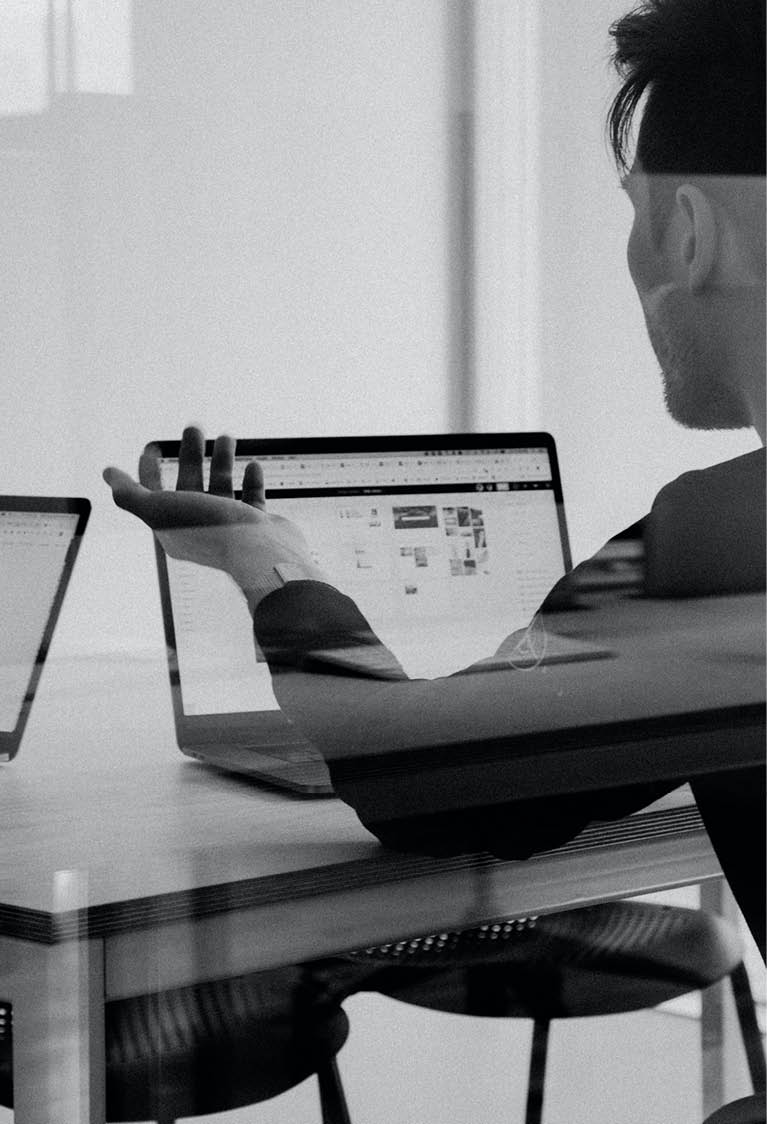


What does great leadership look like in a crisis? What should CEOs be doing right now to seize opportunities? And what key mindsets, systems and processes are top leaders and businesses employing to support success? In the latest in our series Leading Hospitality Through Turbulent Times, CEO of Clinique La Prairie, Simone Gibertoni presents a leadership playbook for these times.
With the challenges posed by the Covid-19 outbreak, should leaders be looking to changetheir strategies and focus?
The first thing leaders should do, Simone said, is forget about job descriptions. “Everybody now has to do everything as we’re in emergency mode”, Simone told the Glion forum. “We need to take decisions very fast. We have to stay positive and stay calm but, at the same time, fear is a way to move the company in the direction we want to go.” Leaders should be role models. “We don’t have to think about being perfect, but we do have to communicate.”
A chance to reboot the business
Simone believes ‘zero-based thinking’ should be the core strategy in this crisis. Leaders should ask themselves this question: “If you were building the company from scratch today, what would you do differently? After Covid, the market may be completely different from the past and the needs of our clients may be completely different”.
“We need to get the best from our people, or our companies are going to die”
“We have to take this opportunity to rethink our company completely. What is difficult is you have to deal at the same time with the short term – what’s going to happen today and tomorrow? – and the long term, rethink the business model of the company.”
While survival and financial results are very important for companies right now, “these last two months have also presented tremendous opportunities for companies to focus on investing in people, and thinking about new ideas. We need to get the best from our people, or our companies are going to die”.
Pivot to meet new client needs
Clinique has created what it calls ‘client angels’, individuals who take care of the needs of guests to provide more meaningful and unique experiences. With guests paying, on average, 35,000 US dollars per person a week, the client angels provide personalized services, tailored to the client. “So, whatever needs the client has – in the hospital, gym or spa – the client deals only with one person. That, in turn, gives the client a lot of reassurance” at this time of social distancing.
“People will not travel for the next 12 months unless they feel they can have a unique experience, something which creates value in their lives. That, for us, is a reason to rethink our business model and rethink how we can really create value for our guests. That’s another big challenge confronting all of us in hospitality in the next months.”
Double down on company culture
During his presentation to the Glion Forum, Simone outlined his ideas on culture and people, as well as on systems and processes. “My belief is really that the companies that are able to implement this guidance, will really be able to thrive in good times but also survive even in the worst of crisis.”
“Culture eats strategy for breakfast,” Simone said. “If you look at companies which have really been able to excel, they’ve always been able to change the culture of the company.”
Simone emphasized several key culture mindsets:
- Take responsibility – “know that we can succeed even in the worst time and that the worst time can be an opportunity”
- Create the best possible management team – “have the right people with you to grow the company”
- Focus on a few things (with 1,000 ideas).
- Manage agreement, not people – “we can inspire and motivate people, but we don’t manage people”
- Coach for success
- Get your hands dirty
“We’re not imposing objective goals, we let people analyze the reality and define their goals. Then, together we plan a commitment to reach these goals. It’s a fantastic model to empower people in companies.”
Know your market and your purpose
Turning to the crisis response processes he has put in place at Clinique La Prairie, Simone highlighted the following key actions:
- Deep dive your market – “make the effort to understand the market you’re in. Unfortunately, many CEOs know little about their competitors, products, and trends of the market they’re in”
- Unique strategy and business model (dream of the impossible) – “only if you know everything about your market, can you think about a unique strategy and business model for your company. Why ‘dream of the impossible’? Because strategic planning is not only a rational process, there’s also a lot of dreaming involved, the ability to think about something which doesn’t exist yet”
- Define your vision and hopes – “like the company mission, a personal mission is so important”
On a more tactical level, he emphasizes:
- Define your KPIs – “you cannot improve what cannot measure”
- Set up a CANI routine – “CANI means constant and never-ending improvement of routine. Again, we’re talking about putting together systems which are able to make innovation, not something which occasionally happens in the company”
- Make NPS your guiding principle – “You’re all masters of the Net Promoter Score in hospitality. For Clinique La Prairie, it’s becoming a fundamental part of our organization”
- Create high performance marketing – “it’s better to have a smaller market where you’re able to really create a lot of value than vice versa”
“It’s always about making small innovations to what is existing”
“Innovation is not reinventing something. Innovation can even be a small improvement of something that already exists. We don’t have to fall into the trap that if only we had a magic idea, we could make the difference. It’s always about making small innovations to what is existing. Dream big, but remember that bad execution will kill even the best strategy. So, execution is the key.”
Read more insight from hospitality leaders that are navigating their businesses through covid-19: Leading Hospitality Through Turbulent Times

















